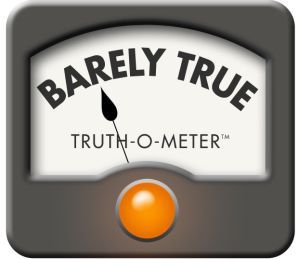Magical Thinking
Seven Reasons Why You Should Distrust Science
Skepticism about science, including (especially?) psychology, is well-justified.
Posted May 7, 2013
Science, scientists, and scientific studies should be routinely treated with deep, deep skepticism. This is not because science is inherently bad. I am not making a case against science, or trying to give sustenance and succor to superstition, supernatural beliefs, or anything as silly as "creation science" (pastafarians, you got nothin' on me). As I wrote in Conservatives Distrust Science:
...science is a terrible way of learning about the world; it just beats all the others. That said, it is important to understand and recognize science's many flaws, weaknesses, and limitations and for that awareness to lead us to be justifiably tentative and skeptical about "scientific" claims and conclusions. 

...science is a terrible way of learning about the world; it just beats all the others. That said, it is important to understand and recognize science's many flaws, weaknesses, and limitations and for that awareness to lead us to be justifiably tentative and skeptical about "scientific" claims and conclusions.
Here are some reasons why:
1. Science is conducted by people. The people conducting science are not always driven by an objective search for truth. Sometimes, but not always. Instead, they are often motivated to disregard truth entirely, or, at least, to avoid it, to slant it, and, instead, to "find" support for particular conclusions, regardless of whether they are true or valid, for economic incentives, for personal fame and glory, because they have identified themselves with a particular phenomenon, or to advance political agendas.
2. There are good reasons to believe that Most Published Findings are False. (Indeed, this is the title of an article cited in my next post).

3. There are good reasons to believe that Most Published Associations (between variables reported in scientific articles) are Inflated. (Indeed, this is the title of another article cited in my next post).
4. Most studies in psychology, medicine, and neuroscience are conducted with sample sizes so small that it is impossible to know whether their results are likely to be either valid or reliable.
5. Many of the most famous studies in social psychology have proven irreplicable, or, at least, have not been replicated.
6. Drug intervention studies frequently fail to replicate.
7. Conclusions in politicized areas of research are often tainted and distorted by the overwhelming leftwing ideology of scientists, especially in the social sciences.
When can biological and psychological sciences be believed? When their results and claims have been demonstrated and replicated by multiple independent teams of researchers, repeatedly, and with large samples.
Resources to follow in a second blog post.


